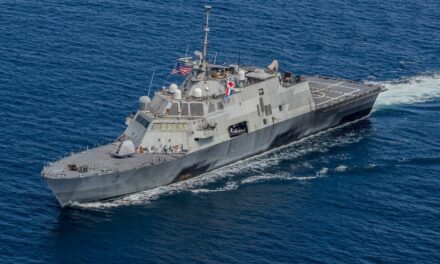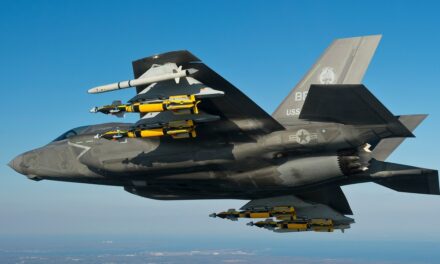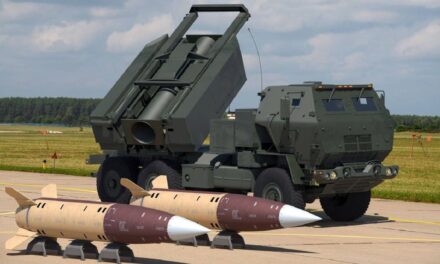We support our Publishers and Content Creators. You can view this story on their website by CLICKING HERE.
During the 2024 campaign, candidate Donald Trump said he could resolve the Ukraine war in twenty-four hours by getting together with Vladimir Putin and Volodymyr Zelensky to thrash things out. At a January 7 press conference, President-elect Trump conceded it could take up to six months.
Call that learning.
Trump fundamentally wants the war to disappear. He has said repeatedly it would never have occurred had he been President, as he has also said about the ongoing Middle East conflict. Of course, these statements are not provable nor disprovable, but they reflect his visceral feeling that the wars are Biden’s problem and should disappear when Biden does.
Neither war will disappear so quickly, but Trump’s comments strongly suggest that he is indifferent to the terms on which they end. That is likely bad news for Ukraine, though it could be good news for Israel in its struggle against Iran’s “ring of fire” strategy.
The Ceasefire Challenge: Good or Bad Idea?
As Inauguration Day nears, little information is publicly available about what Trump will do. And, because he has neither a coherent philosophy nor a strategic approach to foreign affairs, what he says in the morning may not apply in the afternoon.
Accordingly, those concerned for Ukrainian and Western security should focus on what is negotiable with Moscow and what is not. Early decisions on the central components of potential diplomacy can have far-reaching implications that the parties will inevitably try to turn to their benefit. Ukraine, especially, must make several key decisions about how to proceed. Consider the following.
Although a cease-fire linked to commencing negotiations may be inevitable because of pressure from Trump, such a cease-fire is not necessarily in Ukraine’s interest. Talking while fighting was a successful strategy for the Chinese Communist Party in its struggle against the Kuomintang during and after World War II. It could work for Ukraine today under certain conditions. Most important is the continued supply of adequate military assistance, which is questionable with Trump in office.
But a cease-fire can be more perilous for Ukraine than for Russia: the longer negotiations take, the more likely the cease-fire lines become permanent, a new border between Ukraine and Russia far into the future. As negotiations proceed, the absence of hostilities will provide opportunities for Moscow to seek full or at least partial easing of economic sanctions, which many Europeans seem poised to concede.
Moreover, once hostilities stop, they are far harder politically to resume, which is also likely to Ukraine’s disadvantage. Although Russia would probably win an indefinite war of attrition, it also needs time to rebuild its debilitated military and economy. A cease-fire affords that opportunity and thereby buys time for Russia to heal its wounds and prepare for the next attack. Russia waited eight years after its 2014 offensive and can afford to wait again until the West is distracted elsewhere.
Suppose Trump insists on a cease-fire-in-place and contemporaneous negotiations. In that case, Ukraine must be careful to avoid having the talks aim at a permanent solution rather than a temporary accommodation. Russia will see any deal as temporary, no matter what it says publicly. Vladimir Putin obsesses over reincorporating Ukraine into a new Russian empire, and each slice of territory Russia takes back brings that goal closer. Negotiating an “end” to the war plays into the Kremlin’s hands since it provides the false impression to gullible Westerners that there is no risk of future aggression.
Both the cease-fire issue and the duration of any deal raise two other questions: should there be “peacekeepers” along the cease-fire line, and should Ukraine insist on “security guarantees” from the West (NATO or otherwise) against future Russian aggression?
Peacekeeping is operationally complex and rarely successful in any sense other than helping prolong a military stalemate. That is nearly the uniform outcome of UN peacekeeping. Peacekeeping forces (like UNIFIL in Lebanon or UNDOF on the Golan Heights) become part of the landscape in peace or war. The Security Council loses interest in resolving the sources of the underlying conflict. The peacekeepers become irrelevant, as recent developments along the cease-fire line between Israel and Syria demonstrate. In short, peacekeepers are essentially only hollow symbols.
Indeed, the recognition of UN ineffectiveness has likely inspired calls for deploying NATO peacekeepers along the Ukraine-Russia line of control. But does anyone expect Russia to agree meekly? Will Moscow not suggest peacekeepers from Iran or North Korea along with NATO? Moreover, there has been little discussion about what a peacekeeping force’s rules of engagement would be, whether deployed by the UN or NATO. Would these rules be typical of UN operations, where the peacekeepers can only use force only in self-defense? Or would the rules be more robust, allowing force in aid of their mission? Really? In aid of their mission, NATO peacekeepers would be allowed to use force against Russian troops? Or Ukrainian troops? In such circumstances, potential troop-contributing countries would make themselves very scarce.
U.S. Marines fire an M777 Howitzer during Exercise Rolling Thunder 1-22 at Fort Bragg, North Carolina, U.S. October 19, 2021. Picture taken October 19, 2021. U.S. Marine Corps/Lance Cpl. Brian Bolin Jr./Handout
Future security guarantees for Ukraine, which it is insisting upon, are unfortunately likely to be blue smoke and mirrors. Russia has repeatedly said that NATO membership — the only security guarantee that really matters — is a deal-breaker. European Union security guarantees?
Good luck with that. Security guarantees by individual nations? That was the approach of the Budapest agreements on returning Soviet nuclear weapons to Russia; they didn’t work out so well. In short, “security guarantees” are mellifluous words, but evanescent without US and NATO participation, which Trump seems unlikely to endorse.
Time For Ukraine to Be Cautious
Negotiations are looming primarily because Trump wants the war to go away. Europe is too tired and too incapable of charting a different course. Contemplating these depressing scenarios, therefore, Ukraine and its supporters may have little choice but to acquiesce in talks on unfavorable terms.
For that very reason, Kyiv should be very cautious on what it agrees with Trump.
About the Author: Ambassador John R. Bolton
Ambassador John R. Bolton served as national security adviser under President Donald J. Trump. He is the author of “The Room Where It Happened: A White House Memoir.” You can follow him on Twitter: @AmbJohnBolton.

 Conservative
Conservative  Search
Search Trending
Trending Current News
Current News 





